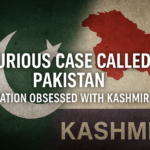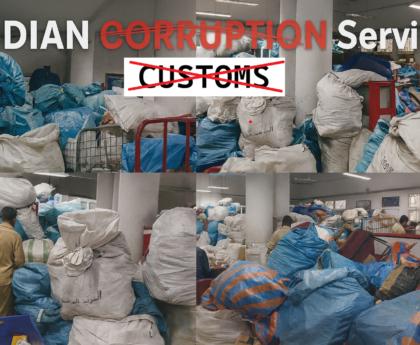On 27 September 2025, in Veluswamypuram (Karur district), a massive crowd crush at a political rally resulted in 40+ deaths including women and small kids and scores more injured. The rally was organized by Tamilaga Vettri Kazhagam (TVK), the political party led by actor-politician Vijay(Joseph Vijay Chandrasekhar).
By official accounts, the organizers had permission for a gathering of 10,000 people, but the actual crowd size ballooned far beyond that—various eyewitness and police estimates suggest 20,000 to 30,000 or more. The crush was triggered when Vijay arrived hours late (delays of 5–7 hours have been cited) and the crowd surged toward the stage, barricades, and his campaign vehicle, trying to catch sight.
Emergency response was hampered by the chaos: ambulances struggled through dense crowd, crowd control was insufficient, and many victims were crushed or suffocated before help could reach them.
In short: a lethal mix of poor planning, overcrowding, delayed arrival, inadequate security and medical preparedness, and panic among attendees. The tragedy has sparked widespread outrage, legal action, and demands for accountability.
Why Many Hold Vijay Accountable
To be clear: the full facts aren’t settled, and investigations are ongoing. But there is a strong case—on multiple fronts—that Vijay and his leadership bear serious responsibility, whether through action or negligence.
Here are the primary lines of accountability:
1. Deliberate Delay / Spectacle Over Safety
One of the recurring accusations is that Vijay delayed his own arrival to build suspense, create hype, and heighten crowd expectations. That delay meant that people waited under harsh conditions (heat, lack of water, exhaustion) which made the crowd more susceptible to panic.
Even more, the FIR filed by Karur police alleges that the organizers “deliberately delayed” his arrival to project power and mass appeal. If true, that would reflect a horrifying willingness to prioritize optics over lives.
2. Ignoring or Overriding Police Advice and Protocols
Multiple reports suggest that police officials and security experts had advised certain crowd control measures—like maintaining buffer zones, stopping the vehicle short of the stage, regulating entry, keeping pathways clear, or fixing crowd projections. But according to official statements, the TVK leadership ignored or overrode those suggestions.
For instance, police say the organizers insisted on allowing the vehicle to come into a crowded area, counter to police recommendations. The state government also claims that though they allocated a safer location alternative, TVK chose the riskier venue.
If a rally leader refuses prudent safety advice, the decision is not just an oversight—it becomes culpable.
3. Underestimating or Misreporting Crowd Numbers
TVK reportedly asked for permission for 10,000 people, which authorities accepted. But the actual numbers far exceeded this estimate.
By significantly underestimating the expected turnout, the organizers misled police and disaster-management authorities about what kind of crowd control, ambulances, security, and resources would be needed.
4. Lack of Adequate Infrastructure, Medical Preparedness & Escape Routes
In mass public gatherings—especially political rallies—planning for emergencies is critical. It is alleged that:
- Buffer zones and exit/entry routes were insufficient or poorly marked.
- Medical / first aid stations and ambulance access were inadequate, compounded by the congestion.
- Provisions for water, shade, rest for waiting crowds under extreme heat may not have been sufficient.
These are not optional details—they are baseline responsibilities for any mass event organizer. A failure here reflects gross negligence.
5. Leadership Absence during Crisis and Inadequate Responsiveness
A political leader who invites tens of thousands of people has to lead during crisis too—not vanish.
Critics point out that after the crush began, Vijay was escorted away, and his public responses were delayed and opaque. DMK politicians claimed that his exit betrays a guilty conscience.
Additionally, Vijay’s first public statement came days later, and offered deflection (e.g. “truth will come out,” “we did nothing wrong”) rather than owning responsibility. In situations of such magnitude, leadership silence or ambiguity is morally hollow.
Counterarguments & Context
To be fair, the defense will present counterpoints—and some of them carry weight. But none of them absolve the core responsibility.
- The state and local administration share fault: crowd control, policing, permissions, local infrastructure.
- The venue was assigned and vetted by authorities; some management failures may have been beyond TVK’s direct control.
- Vijay’s allies argue that he was not directly involved in logistics and crowd management; these tasks lie with the organizing team.
- He has expressed grief, pledged support to victims’ families, and asked for proper investigation.
None of these, though, negate the fact that he was the focal figure around whom the rally was built—and the one whose image and political ambitions were tied to the event’s success. When you draw massive crowds, you cannot disclaim responsibility for their safety.
As of now TVK & Vijay have cancelled all political events especially gathering across Tamil Nadu!
Why the Stakes Are High
This tragedy is not just about immediate loss of life; it has broader implications:
- Moral legitimacy: For someone entering electoral politics on the promise of new, responsible leadership, this massacre will serve as a defining test of character.
- Legal accountability: FIRs already include serious charges (culpable homicide, endangering life) against TVK functionaries. Should investigators trace a chain of decision-making up to Vijay, he may not be spared.
- Political fallout: His opponents and critics will rightly frame this as a cautionary tale: mass appeal cannot substitute for competent governance.
- Precedent for public safety in rallies: What happens here may reshape how political events are organized in Tamil Nadu (and India), how crowd estimates are handled, how liability is assigned.
Beyond Blame, Toward Justice
The Karur stampede is a horror that must be met not just with condolence, but with accountability. If investigator after investigator finds that miscalculations and negligence at multiple levels led to this disaster, they must not shy away from holding Vijay—or whoever in his chain of command—responsible.
Yes: the government and law enforcement bear responsibility. Yes: many factors combined to produce a catastrophe. But in the orchestra of failure, the conductor—the one who calls the rally, sets the schedule, and commands influence over the crowd — cannot escape scrutiny.
If Vijay truly aspires to be more than a cinematic hero turned politician, the test is whether he steps forward, accepts responsibility, commissions external audit of his own decisions, and cooperates fully with impartial, powerful inquiry mechanisms—even if the conclusions are harsh. The people who died, and those who survived, deserve no less.




